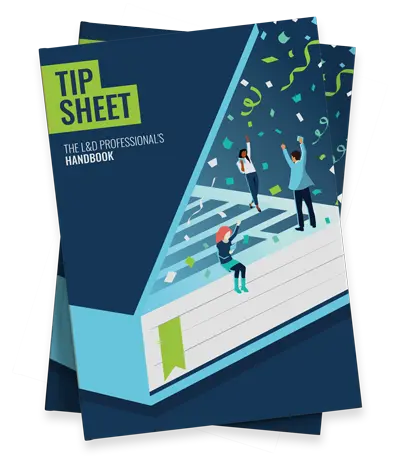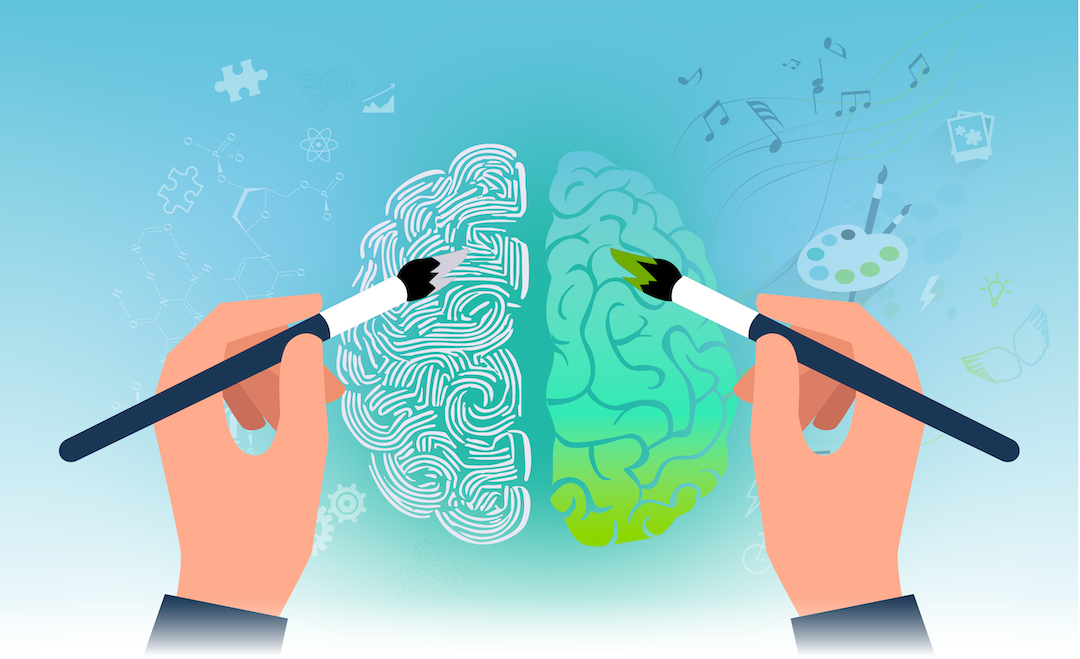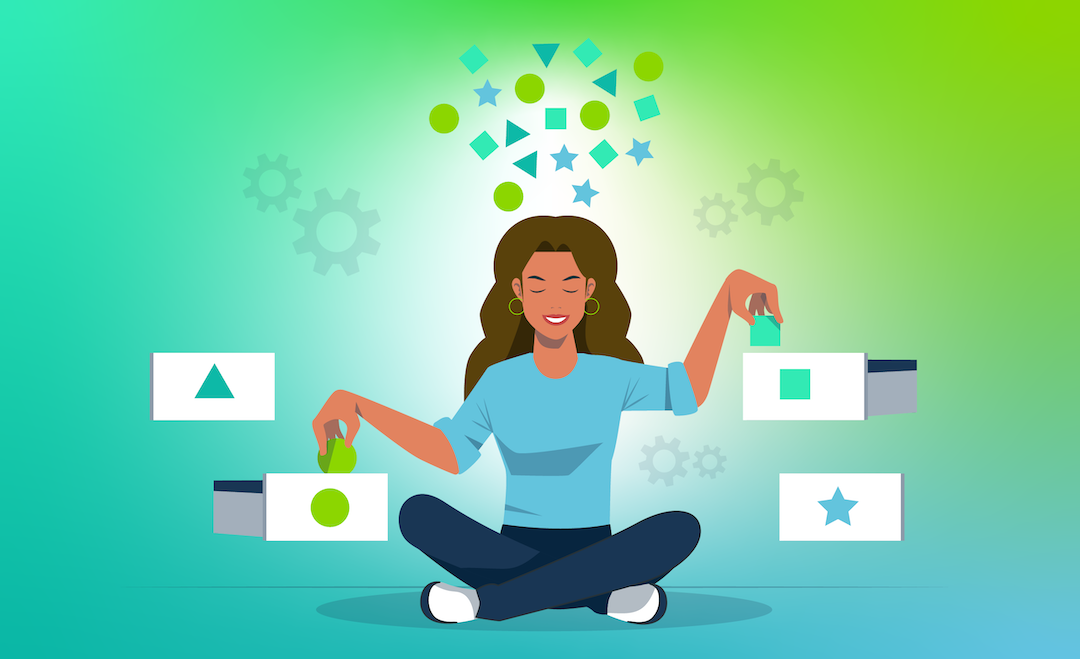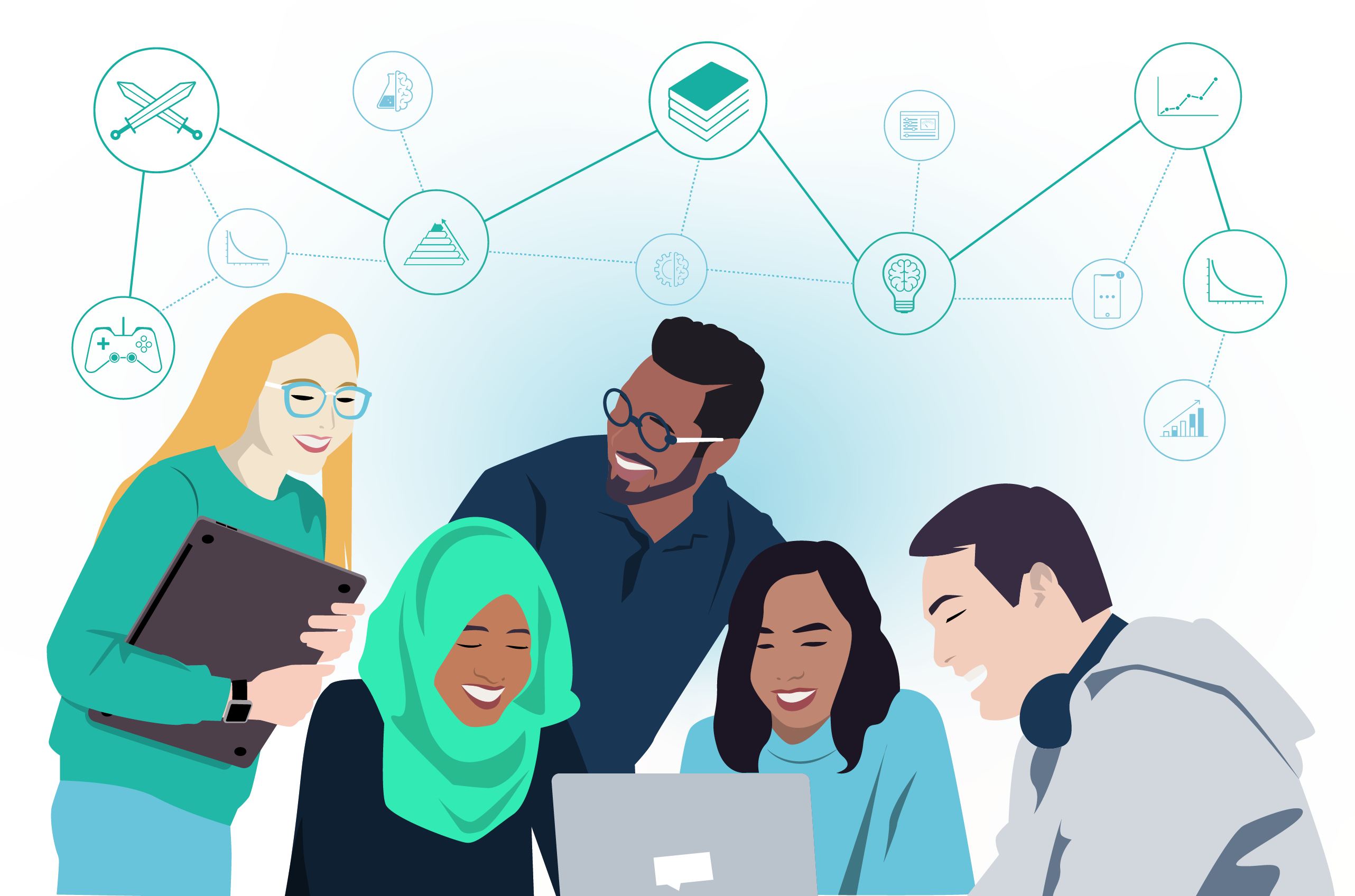 Experiential learning is the process of learning by getting hands-on. It requires active engagement. The experiential learning cycle simply explains how we learn best through experience and reflection.
Experiential learning is the process of learning by getting hands-on. It requires active engagement. The experiential learning cycle simply explains how we learn best through experience and reflection.
This type of informal learning is all about trial and error. It’s requires going through the process of actually doing the stuff we want to learn, and reflecting on the experience.
As Aristotle once put it, ‘for the things we have to learn before we can do them, we learn by doing them.’
In this article, we’ll delve into the concept of experiential learning, examining its definition, the advantages and the key proponents. We’ll also provide practical advice for incorporating this approach within your own educational framework.
Ready? Let’s get experienced!
Learning From Experience
So, how do we effectively learn new skills? You could watch hours of The Great British Bake Off, but soggy bottom or no soggy bottom, you won’t know if you like cake until you taste it.
Why? Because we learn from experience. Whatever you’re trying to master, be it a baking showstopper, your day job, or setting up your own business, your success will be down to experiential learning.
Experience-based learning is so effective because it helps establish lasting behaviour change. After all, rather than simply understanding a new subject or gaining a skill, we develop new habits and behaviours.
In fact, according to the 70:20:10 model, 70% of what we learn in the workplace comes from on-the-job experience. Yet, the real learning happens when we reflect on those experiences. Research confirms that quality reflection time helps us learn.
The Benefits of Learning by Experience
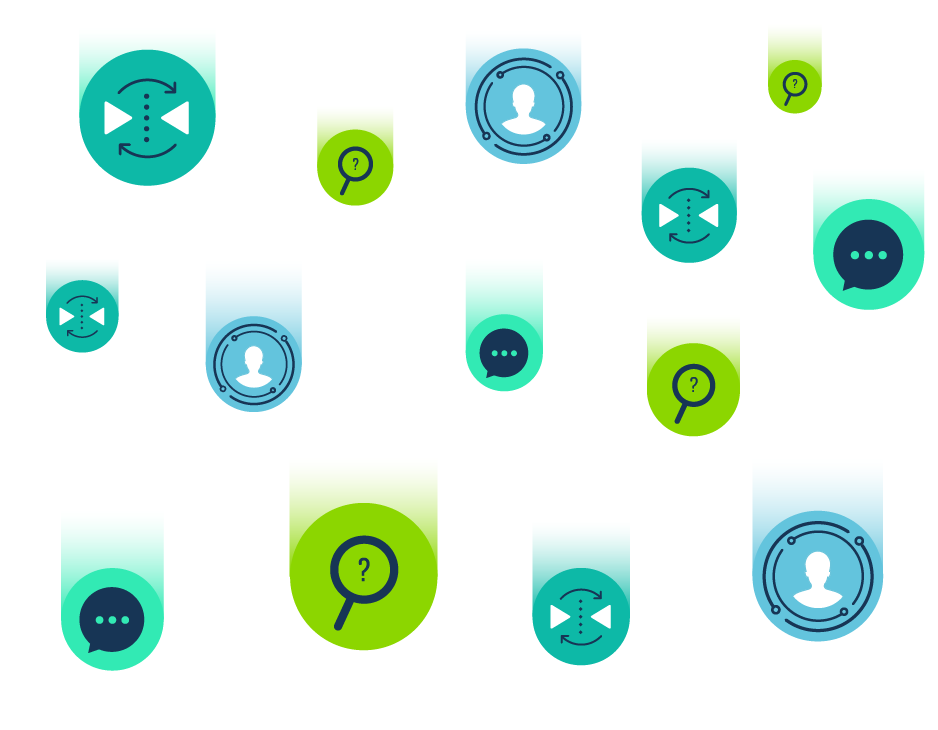 The concept of experiential learning can present a daunting challenge for learning and development teams. The question arises: how can you provide practical, hands-on learning opportunities at scale?
The concept of experiential learning can present a daunting challenge for learning and development teams. The question arises: how can you provide practical, hands-on learning opportunities at scale?
We’ll return to this question shortly. But first, let’s build a case:
- Knowledge retention is increased by experiential learning (68% vs 29%).
- Other experiential learning studies have shown a 70% increase in knowledge retention.
- There are countless other studies demonstrating a positive impact.
- 79% of employees say it is important to have on-the-job learning experiences.
Convinced? Then let’s jump into the theories themselves.
David Kolb’s Theory of Experiential Learning
Professor D.A. Kolb is perhaps the person best associated with experiential learning theory. Here’s what he has to say on the matter: ‘knowledge results from the combination of grasping experience and transforming it.’
His research shows that true expertise is a continuous process of experience, reflection, conceptualisation and experimentation. These elements make up Kolb’s experiential learning cycle, which shows the relationship between each phase.
The Experiential Learning Cycle
Kolb’s experiential learning cycle has four phases. These can be seen in the diagram below. Learning is like the changing of the seasons. Experience turns to reflection, which turns to conceptualisation and then experimentation. Following this, the cycle begins again.
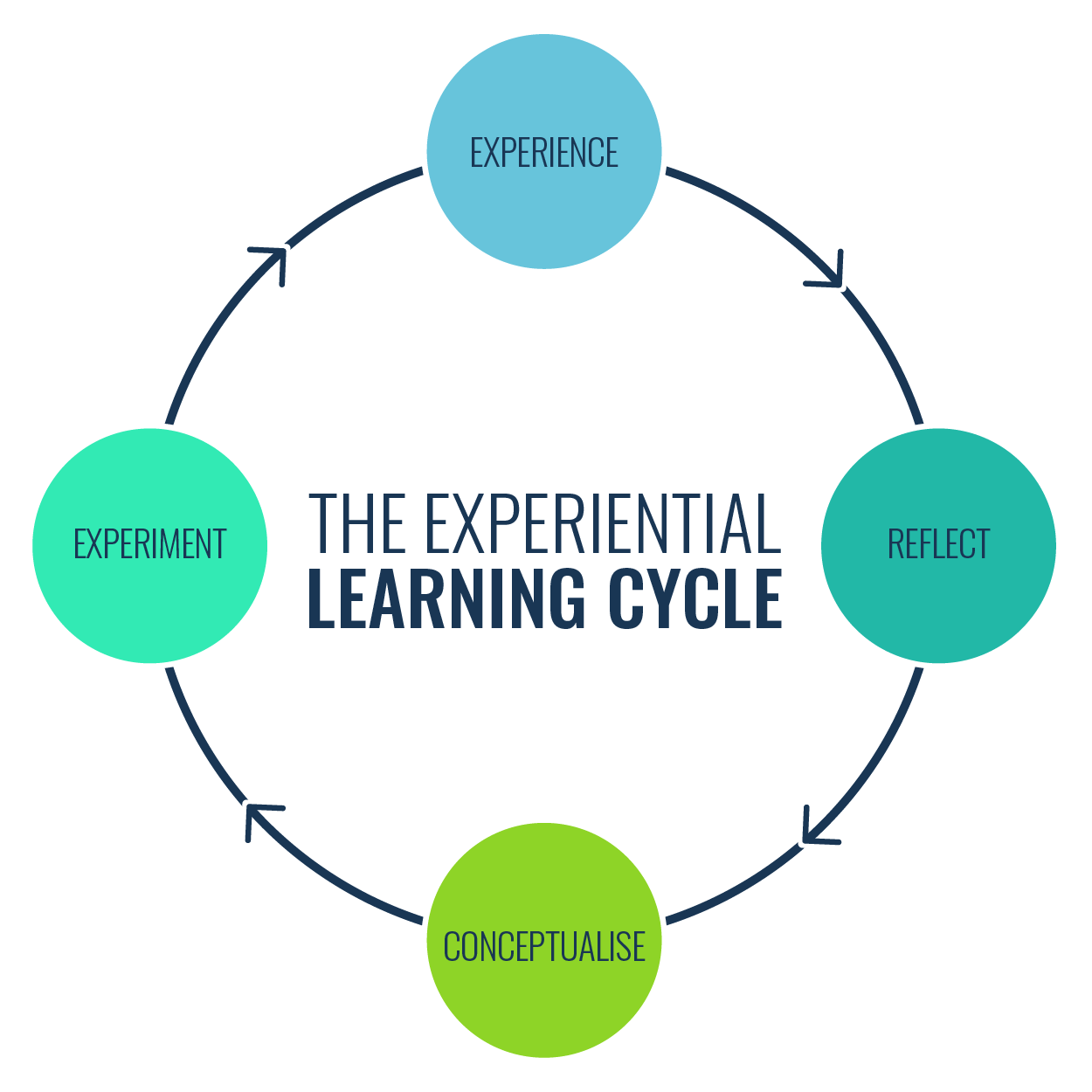 1. Concrete Experience
1. Concrete Experience
Concrete experience describes the hands-on personal experiences that we learn from. It’s where we try new things, get stuck in and step out of our comfort zone.
These experiences could be anything in our personal or professional lives. This could include trying a new recipe, performing a daily task at work or simply missing a tpyo (well spotted!).
Through experience, we can learn from our successes and failures. It’s what happens next that creates real behaviour change!
2. Reflective Observation
Next, we need to reflect to successfully learn from our experiences. This is what the ‘reflective observation’ phase of the experiential learning cycle is all about.
It’s during this stage that we consider and ponder our experiences. What went right and what could be improved? It’s also a chance to observe and learn from others.
This is a stage of analysis, observing alternatives and drawing up pros and cons. Whatever works for you! Why did you burn the cake? Where was the typo? Who is top of the company learner leaderboard and why?
3. Abstract Conceptualisation
Once we understand the defining characteristics of an experience, we can decide what we will do differently next time, if anything. This is a time for planning and brainstorming strategies for success.
You could set the oven timer to avoid a baking mishap, use spell check or practise that challenging task at work when you have some spare time. Through experiential learning, you’ll be top of the learner leaderboard in no time!
4. Active Experimentation
The active experimentation phase of the learning cycle is where we get to experiment with our ideas. It’s time to put your plan of action to the test in the real world. After all, if we don’t try something we won’t know if it works.
Whatever you’re seeking to master, however lofty or detailed your plans, at some point you have to put away the textbooks and do it for real. However many times you have to go back to the drawing board, the taste of success is always worth it.
John Dewey’s Experiential Learning Theory
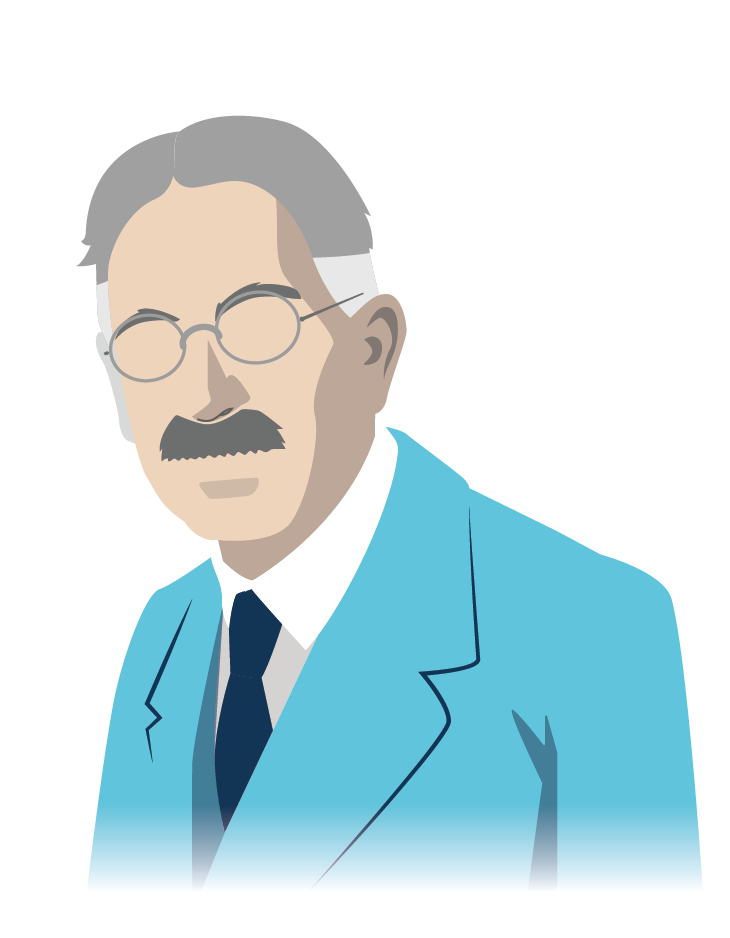 We can’t talk about experiential learning without mentioning John Dewey, a renowned American philosopher, psychologist and educational reformer.
We can’t talk about experiential learning without mentioning John Dewey, a renowned American philosopher, psychologist and educational reformer.
Dewey denounced passive learning. In fact, he believed that genuine learning was only possible if we actively engage with an experience or work through a scenario.
In Dewey’s words, ‘there is an intimate and necessary relation between the process of actual experience and education’. As duo, they are inseparable.
Of course, there’s much more to John Dewey’s learning theory (you can explore it in detail here). But for now, here are the central tenets of his experiential approach:
- Learning happens through experience, or getting ‘hands-on’.
- Learning requires active engagement. There’s no such thing as passive learning.
- Learning takes place within a social context.
- Learning should be a democratic process.
- Reflecting on our experiences creates better learning outcomes.
How to Implement Experiential Learning
Now we know the theory, let’s explore how you can add experiential learning to your structured workplace training programme.
Not sure where to start? Here are just a few ways learning technologies (such as learning management systems and learning apps) can help us learn from experience and reflection.
1. Experiential Learning Activities
Start by simulating concrete experiences. Contrary to what you might expect, this doesn’t necessarily require setting up workshops, learning labs or interactive sessions. After all, online learning provides an awesome platform for recreating real-world tasks within a safe environment.
These experiences can take many forms, such as learning games or game-based learning, scenario-based learning, or even immersive experiences.
Need help picking out the right experiential learning activities for your training approach? Check out the video below on Edgar Dale’s Cone of Experience.
These virtual experiences can recreate what happens in learners’ day jobs, giving them the chance to practise their skills. For example, customer service reps could come face-to-face with an unhappy virtual customer and be asked to process a refund.
2. Provide Opportunities for Reflection
Provide ample opportunity within your training for reflection. Following a piece of learning or simulated experience, you could include open-ended quiz questions that invite learners to consider and evaluate their experience. Workbook exercises can also prove to be effective.
How did the customer service rep feel when faced by the customer’s demands? What went well and what could be improved about their interaction? How might that change the overall outcome?
3. Fail and Fail Again
Don’t forget to give learners the chance to try again! Through simulated experiences, reflective questions and social learning, everyone will be eager to try out their new skills.
Encourage people to head back into your training environment and take on the challenges again. This time they may be able to create very happy customers.
You can encourage learners to keep improving and experimenting with their abilities by introducing engaging gamification features, such as XP, Badges and Leaderboards.
4. Learn From Others Experiences
Another important factor in the reflective observation stage of experiential learning is observing and learning from the experiences of others.
How do people’s reactions to an experience differ from our own? Why did someone succeed in a certain task? What did they do that I can learn from?
Social learning can help employees learn from each other by providing opportunities for learners to share their experiences. Where possible, you should seek to establish a knowledge-sharing community.
5. On-the-Job Training
Consider pairing employees with more experienced colleagues for mentorship or shadowing opportunities. Offer coaching where relevant. This hands-on approach facilitates learning directly from experts within the context of actual work situations.
Don’t forget to implement regular feedback mechanisms and encourage self-reflection following these training activities.
Final Words
Incorporating experiential learning into an organisational learning programme involves creating opportunities for employees to learn through doing, reflecting on their actions, and applying these insights to improve their performance.
In doing so, you’ll be building on the work of theorists like David Kolb, Edgar Dale and John Dewey. You’ll also unlock a bounty of benefits — both for you and your learners.
Are you ready to experience greatness?
Thank you for reading. Experiential learning is just part of a good L&D strategy. For the full breakdown, please download ‘The L&D Professional’s Handbook’. It contains 165 tips designed to help you thrive.

